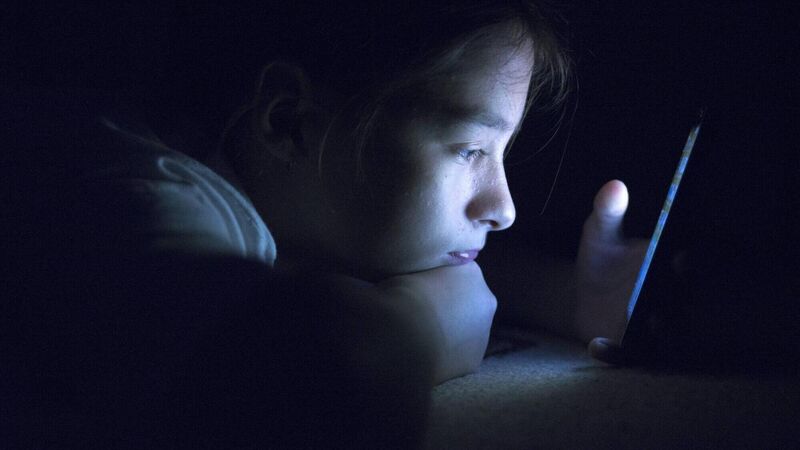Research shows majority of children aged eight to 12 have access to mobile devices overnight

The research also reveals that screen time is dominating key parts of children's waking hours — 56% of children go online straight after school, 39% use devices just before falling asleep, and 11% reach for them first thing in the morning. File picture: Getty
Some 83% of primary school children between eight and 12 have access to internet-connected devices in their bedrooms, with 63% allowed to have them overnight.
The new research by Ireland's online safety charity, CyberSafeKids, also found that boys were significantly more likely than girls to both use devices in their bedrooms (89% vs 79%) and to keep them there overnight (79% vs 58%).













